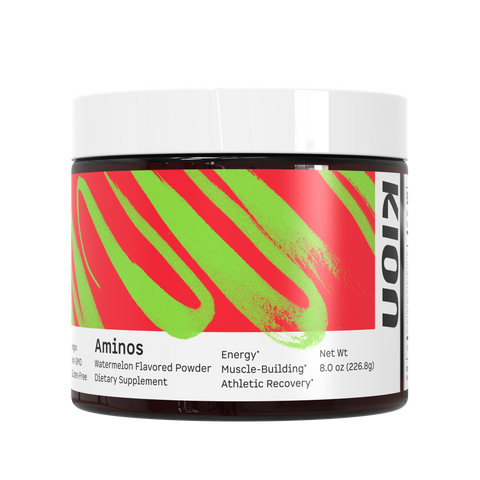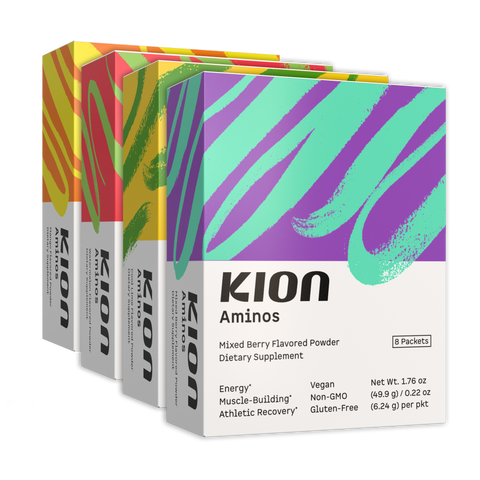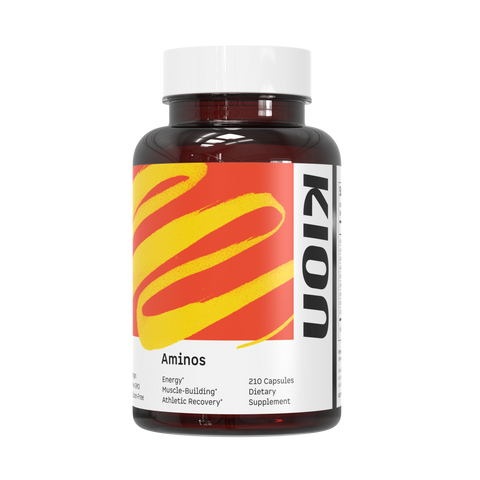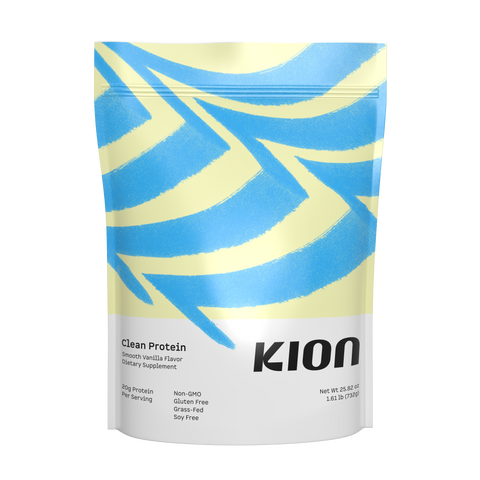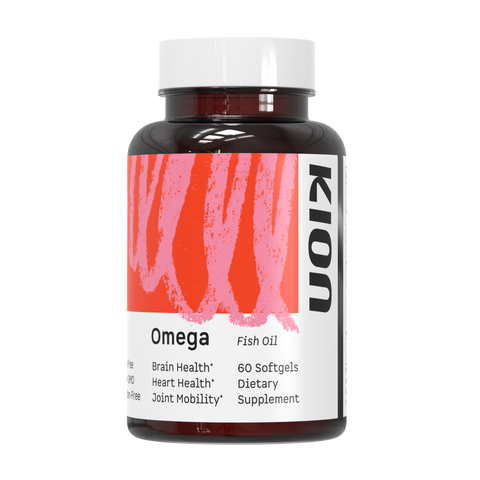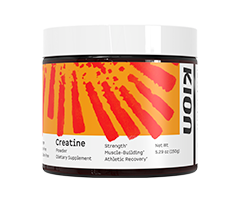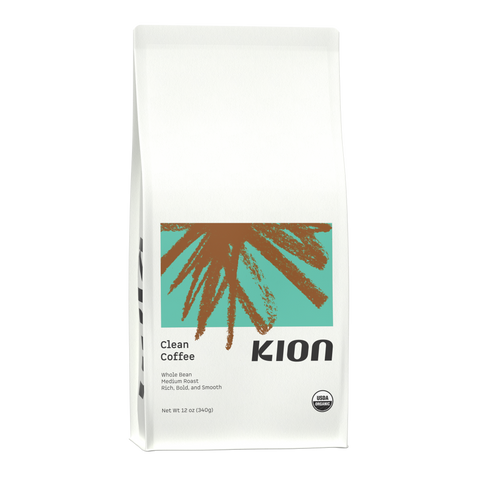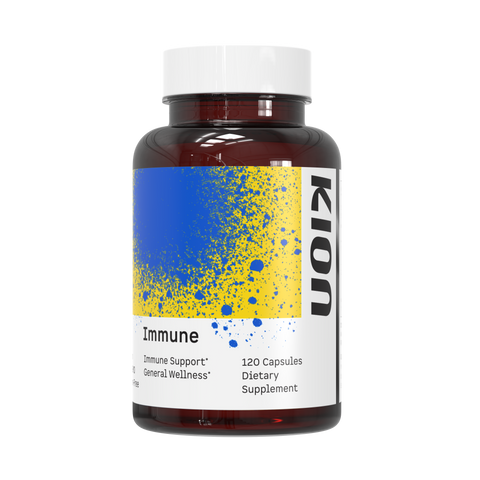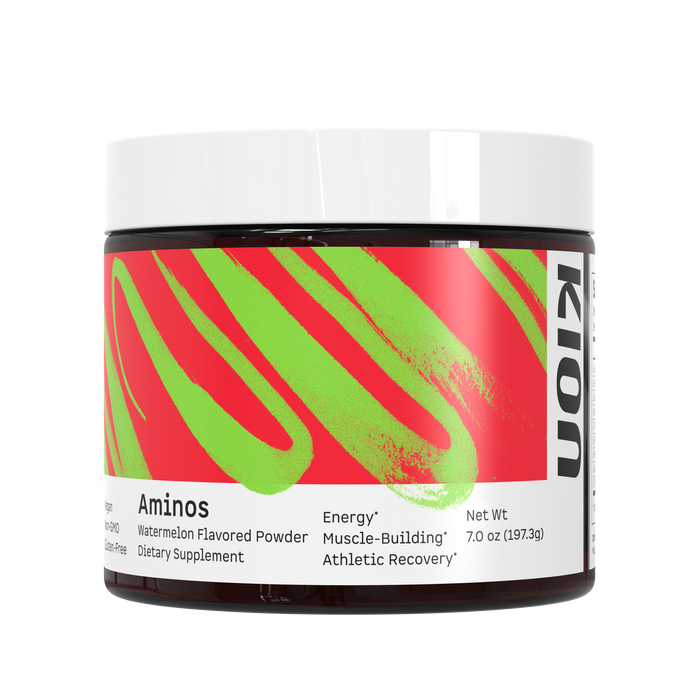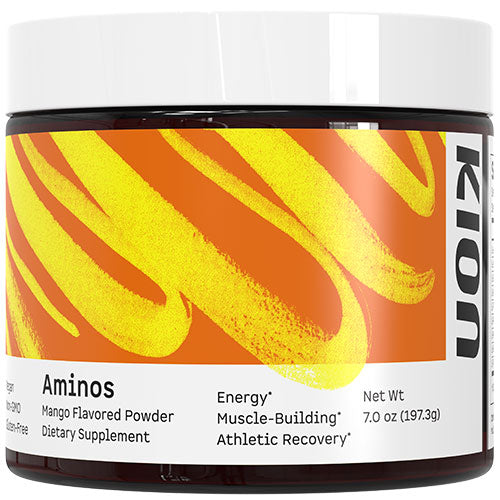As we age, our bodies undergo many changes, some of which can negatively impact our physical and mental well-being.
While we can't stop aging, there is such a thing as "healthy aging," and doing so is easier than you may think.
The World Health Organization (WHO) defines healthy aging as the process of developing and maintaining the functional ability that enables well-being in older age.
One of the most impactful changes seen with aging is muscle loss, which can start as early as age 30, with most people experiencing significant loss around age 50.
Research has shown that significant muscle loss increases your risk of cardiovascular events and decreases your chances of survival for various diseases.
In addition to poor health outcomes, muscle loss as you age means more difficulty performing everyday tasks and maintaining an active lifestyle.
Keep reading to discover the latest research on aging and practical and simple solutions you can implement today to unlock the secret to healthy aging.
Research Findings on Aging
In recent years, research has made significant strides in understanding the biology of aging.
It is now becoming more widely known that lifestyle choices play a significant role in healthy (or unhealthy) aging.
For example, telomeres, the protective caps at the ends of our DNA, shorten with age and are associated with aging at the cellular level. Maintaining the length of these protective caps through a healthy lifestyle may help delay age-related diseases.
Studies have shown that fasting can extend lifespan and delay the onset of age-related diseases in various species, including humans. Learn more about fasting and which type of fast is best for your specific health goals here.
Chronic low-grade inflammation, also known as inflammaging, has been shown to strongly contribute to the aging process and age-related diseases. Adopting lifestyles that combat this inflammaging, including eating a balanced diet and exercising regularly, may help fight this process.
Practical and Simple Solutions
Here are some practical and straightforward steps you can take to promote healthy aging:
Prioritize sleep: Getting good sleep can protect against disease as well as improve your mental sharpness.
Keep mentally stimulated: Participate in mentally challenging activities, such as puzzles, learning new skills, or taking up hobbies, to support cognitive health.
Foster social connections: Engaging in social activities and maintaining strong relationships can help promote mental and emotional health.
Stay physically active: Regular exercise, including aerobic, strength, and flexibility training, can help maintain muscle mass, support cardiovascular health, and improve overall well-being.
Eat a balanced diet: Consuming a nutrient-rich diet, including fruits, vegetables, lean proteins, and whole grains, can help prevent age-related diseases and support optimal health.
Prioritize essential amino acids (EAAs): These building blocks of proteins play a crucial role in maintaining muscle mass, immune function, and many other biological processes. Including high-quality protein sources, such as lean meats, fish, dairy products, and EAA supplements can ensure adequate EAA intake.
As mentioned earlier, muscle loss is one of the most significant factors in healthy aging. EAAs are required for the building, and maintenance, of muscle mass.
EAAs and Healthy Aging
As we age, getting ample amounts of EAAs becomes even more important. This is because our body's ability to digest and absorb EAAs decreases as we get older.
This decrease in the digestion and absorption of EAAs hinders the process of muscle protein synthesis (MPS) and muscle maintenance, leading the age-related loss of muscle mass and strength known as sarcopenia.
Research has shown that consuming adequate amounts of EAAs can help stimulate MPS and combat age-related muscle loss.
EAAs also play a role in reducing inflammation and oxidative stress, both of which contribute to age-related diseases and functional decline. By including sufficient EAAs in our diet, we can better regulate these processes and support healthy aging.
As we grow older, our immune system also becomes weaker, making us more susceptible to infections and diseases. EAAs are help maintain a strong immune system.
Studies have demonstrated that supplementation with EAAs can support immune function, enhance resistance to infections, and improve overall health in older adults.
Moreover, EAAs play a vital role in maintaining the balance of chemical messengers in our brain that regulate mood, memory, and cognitive function.
Adequate EAA intake is necessary for the production of chemical messenger like serotonin and dopamine, which help to keep our brain sharp and prevent age-related cognitive decline.
Kion Aminos for Healthy Aging
Kion Aminos is a clean, research-backed source of all 9 EAAs in the optimal ratio for building and maintaining muscle mass.
By providing the necessary building blocks for MPS, Kion Aminos can support healthy aging.
Because Kion Aminos requires little absorption, stimulates MPS to a greater degree than dietary protein, and contains 100% EAAs, they are all the more important for anyone over the age of 30.
The Kion Aminos formula is the result of over 20 years of clinical research and countless hours peering through the most sound and current science.
It it made of clean, natural ingredients; is sugar-free; and contains no caffeine or artificial sweeteners.
Kion Aminos comes in delicious, natural flavors like Watermelon, Mango, Mixed Berry, and Cool Lime as well as unflavored Capsules.
By incorporating Kion Aminos into your daily routine, you can give your body the necessary support to build healthy, strong muscle; combat age-related challenges; and promote overall well-being.
Conclusion
Healthy aging is a complex, multifaceted journey influenced by genetics, lifestyle, and environmental factors.
Research has shown that adopting healthy habits, fostering social connections, and maintaining mental acuity are crucial for aging gracefully.
EAAs play a vital role in supporting our bodies through the aging process, and Kion Aminos provides an optimal solution to ensure you receive the necessary EAAs for optimal health.
Combined with other practical and simple tips, Kion Aminos can help you unlock the secret to healthy aging.
Scientific Research
- Aman Y, Schmauck-Medina T, Hansen M, et al. Autophagy in healthy aging and disease. Nat Aging. 2021;1(8):634-650.
- Azhar G, Wei JY, Schutzler SE, et al. Daily consumption of a specially formulated essential amino acid-based dietary supplement improves physical performance in older adults with low physical functioning. J Gerontol A Biol Sci Med Sci. 2021;76(7):1184-1191.
- Blackburn EH, Epel ES, Lin J. Human telomere biology: A contributory and interactive factor in aging, disease risks, and protection. Science. 2015;350(6265):1193-1198.
- BMJ. Middle aged muscle mass linked to future heart disease risk. https://www.bmj.com/company/newsroom/middle-aged-muscle-mass-linked-to-future-heart-disease-risk/
- Breen L, Phillips SM. Skeletal muscle protein metabolism in the elderly: Interventions to counteract the 'anabolic resistance' of ageing. Nutr Metab (Lond). 2011;8:68.
- Cezard G, McHale CT, Sullivan F, Bowles JKF, Keenan K. Studying trajectories of multimorbidity: a systematic scoping review of longitudinal approaches and evidence. BMJ Open. 2021;11(11):e048485.
- Dalangin R, Kim A, Campbell RE. The Role of amino acids in neurotransmission and fluorescent tools for their detection. Int J Mol Sci. 2020;21(17):6197.
- Domingo-Ortí I, Lamas-Domingo R, Ciudin A, et al. Metabolic footprint of aging and obesity in red blood cells. Aging (Albany NY). 2021;13(4):4850-4880.
- Fontana L, Partridge L. Promoting health and longevity through diet: from model organisms to humans. Cell. 2015;161(1):106-118.
- Fratiglioni L, Paillard-Borg S, Winblad B. An active and socially integrated lifestyle in late life might protect against dementia. Lancet Neurol. 2004;3(6):343-353.
- Fuller-Thomson E, Nowaczynski A, MacNeil A. The association between hearing impairment, vision impairment, dual sensory impairment, and serious cognitive impairment: findings from a population-based study of 5.4 million older adults. J Alzheimers Dis Rep. 2022;6(1):211-222.
- Fulop T, Larbi A, Pawelec G, et al. Immunology of aging: the birth of inflammaging. Clin Rev Allergy Immunol. 2023;64(2):109-122.
- Gielen E, Beckwée D, Delaere A, et al. Nutritional interventions to improve muscle mass, muscle strength, and physical performance in older people: an umbrella review of systematic reviews and meta-analyses. Nutr Rev. 2021;79(2):121-147.
- Green CL, Lamming DW. Regulation of metabolic health by essential dietary amino acids. Mech Ageing Dev. 2019;177:186-200.
- Janssen I, Heymsfield SB, Wang ZM, Ross R. Skeletal muscle mass and distribution in 468 men and women aged 18-88 yr. J Appl Physiol (1985). 2000;89(1):81-88.
- Jones MR, Ehrhardt KP, Ripoll JG, et al. Pain in the elderly. Curr Pain Headache Rep. 2016;20(4):23.
- Kelly B, Pearce EL. Amino assets: how amino acids support Immunity. Cell Metab. 2020;32(2):154-175.
- Marengoni A, Angleman S, Melis R, et al. Aging with multimorbidity: a systematic review of the literature. Ageing Res Rev. 2011;10(4):430-439.
- Milan AM, D'Souza RF, Pundir S, et al. Older Adults Have Delayed Amino Acid Absorption after a High Protein Mixed Breakfast Meal. J Nutr Health Aging. 2015;19(8):839-845.
- Mitchell WK, Williams J, Atherton P, Larvin M, Lund J, Narici M. Sarcopenia, dynapenia, and the impact of advancing age on human skeletal muscle size and strength; a quantitative review. Front Physiol. 2012;3:260.
- National Institute of Aging. What do we know about healthy aging? https://www.nia.nih.gov/health/what-do-we-know-about-healthy-aging. Accessed March 27, 2023.
- Park DC, Lodi-Smith J, Drew L, et al. The impact of sustained engagement on cognitive function in older adults: the Synapse Project. Psychol Sci. 2014;25(1):103-112.
- PubChem. Histidine. https://pubchem.ncbi.nlm.nih.gov/compound/Histidine. Accessed March 23, 2023.
- PubChem. Isoleucine. https://pubchem.ncbi.nlm.nih.gov/compound/l-Isoleucine. Accessed March 23, 2023.
- PubChem. Leucine. https://pubchem.ncbi.nlm.nih.gov/compound/Leucine. Accessed March 23, 2023.
- PubChem. Lysine. https://pubchem.ncbi.nlm.nih.gov/compound/L-lysine. Accessed March 23, 2023.
- PubChem. Methionine. https://pubchem.ncbi.nlm.nih.gov/compound/L-methionine. Accessed March 23, 2023.
- PubChem. Phenylalanine. https://pubchem.ncbi.nlm.nih.gov/compound/L-phenylalanine. Accessed March 23, 2023.
- PubChem. Threonine. https://pubchem.ncbi.nlm.nih.gov/compound/L-threonine. Accessed March 23, 2023.
- PubChem. Tryptophan. https://pubchem.ncbi.nlm.nih.gov/compound/L-tryptophan. Accessed March 23, 2023.
- PubChem. Valine. https://pubchem.ncbi.nlm.nih.gov/compound/Valine. Accessed March 23, 2023.
- Sayer AA, Cruz-Jentoft A. Sarcopenia definition, diagnosis and treatment: consensus is growing. Age Ageing. 2022;51(10):afac220.
- Valerio A, D'Antona G, Nisoli E. Branched-chain amino acids, mitochondrial biogenesis, and healthspan: an evolutionary perspective. Aging (Albany NY). 2011;3(5):464-478.
- Wall BT, Gorissen SH, Pennings B, Koopman R, Groen BB, Verdijk LB, van Loon LJ. Aging Is Accompanied by a Blunted Muscle Protein Synthetic Response to Protein Ingestion. PLoS One. 2015;10(11):e0140903.
- Wolfe RR. Branched-chain amino acids and muscle protein synthesis in humans: myth or reality?. J Int Soc Sports Nutr. 2017;14:30.
- World Health Organization. Ageing and health. 1 October 2022. https://www.who.int/news-room/fact-sheets/detail/ageing-and-health. Accessed March 27, 2023.
* These statements have not been evaluated by the Food and Drug Administration. This product is not intended to diagnose, treat, cure, or prevent any disease.
© 2022 Kion. All rights reserved.



